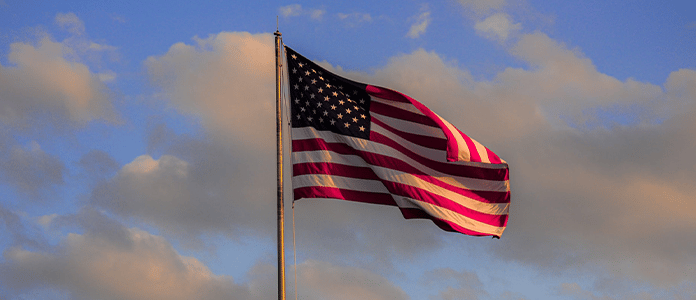On October 6, President Joe Biden announced that he will be issuing pardons to everyone who has been convicted of “simple possession” of marijuana in federal courts. At the same time, President Biden directed Xavier Becarra, the head of the Department of Health and Human Services, along with the Attorney General, to conduct a review of marijuana’s Schedule 1 status. [1]
Many people in the cannabis industry have found hope in the President’s announcements, believing that they will pave the way for an eventual legitimation of the commercial cannabis industry, which has been operating for years under a regime of federal illegality. Others have been disappointed at the scope and apparent direction of the President’s reform efforts.
The Limited Scope of President Biden’s Pardons
As for the pardons, it has been estimated that they will help clear the records of up to 6,500 Americans with federal convictions for simple possession of marijuana. The pardons, however, do nothing to help the approximately 3,000 people currently in federal prison for marijuana offenses, as they all have sales-related convictions, which are ineligible for the pardon program. Most simple marijuana possession cases are prosecuted at the state or local level, and federal simple possession convictions tend to be limited to people possessing marijuana on federal property.
In addition, immigrant groups have expressed disappointment that undocumented immigrants and temporary visa holders — a group that faces deportation for cannabis convictions — will be ineligible for the pardon program. President Biden’s pardon proclamation expressly states that it applies only to “current United States citizens and lawful permanent residents.” [2]
The pardons also leave the federal government free to continue prosecuting people involved in the licensed cannabis industry with felony charges, to continue imposing punitive tax rules on the industry (26 U.S. Code § 280E), and to continue seizing and attempting to forfeit the assets of licensed cannabis businesses. The federal Rohrbacher-Farr amendment provides some protection to state-licensed medical cannabis operators, in that it prevents the US Department of Justice (which includes the DEA and FBI) from using any funds to prevent States from implementing their own State laws that authorize medical marijuana. There is no similar protection, however, for anyone engaged in the state-licensed non-medical cannabis industry. Earlier this year, a federal judge in California refused to issue an emergency order that would have blocked law enforcement agencies from continuing to seize money an armored car company transports for licensed marijuana dispensaries. Empyreal Enterprises, LLC v. The United States of America et al, Case Number: 5:22-cv-00094 (C.D. Cal. 2022). And according to annual data complied by the DEA, federal law enforcement agents and their partners made more than 6,600 marijuana-related arrests in 2021, a 25% increase over 2020’s totals, and the highest number of federal cannabis arrests since 2011.[3]
On the campaign trail in 2020, Biden declared: “No one should be in jail because of marijuana. As President, I will decriminalize cannabis use and automatically expunge prior convictions.” His initial pardon program is not as expansive as what many had hoped, but at least it provides some relief to some people suffering from the collateral consequences of relatively minor marijuana convictions and could lead to broader pardons in the future.
Schedule 1 to Schedule 2?
While the pardon relief is very limited in scope, some people believe that President Biden’s call for re-visiting marijuana’s Schedule 1 status is a bigger reason for celebration. Under the law, both Congress and the Biden Administration have the ability to alter the Schedule 1 status of marijuana. Since the passage of the Controlled Substances Act in 1970, the federal government has classified marijuana as a Schedule 1 controlled substance, meaning that it is considered to have no medical benefit and a high potential for abuse, and that its production and sale, even for medical purposes, is subject to harsh criminal penalties, often many years in federal prison. Many people within the cannabis industry have hoped that the federal government will “de-schedule” marijuana, taking it completely off the list of 5 schedules of federally controlled substances. This would leave the states free to enforce their own policies regulating marijuana (as they do regarding alcohol), while leaving the federal government largely out of marijuana regulation. President Biden, however, has proposed “re-scheduling” marijuana from Schedule 1 to Schedule 2 (instead of de-scheduling it), which would place it in the same category as fentanyl and cocaine. Clearly, this move would have minimal positive effect upon existing regulated marijuana businesses.
President Biden’s October 6 announcement merely asked the Secretary of Health and Human Services and Attorney General “to initiate the administrative process to review expeditiously how marijuana is scheduled under federal law,” and did not specify whether Biden recommended de-scheduling marijuana or re-scheduling it to a specific new schedule. Last year, however, then-White House Press Secretary Jen Psaki provided further details about President Biden’s plans, stating: “The president supports … rescheduling cannabis as a Schedule II drug so researchers can study its positive and negative impacts.” This echoed Biden’s statement in his platform posted on his 2020 campaign website, stating that, as President, Biden would “support the legalization of cannabis for medical purposes … and reschedule cannabis as a schedule II drug so researchers can study its positive and negative impacts.”[4] Hidden in this agenda is a possible bright light: our friend and cannabis regulatory expert, Norman Birenbaum, was recently hired by the Food and Drug Administration (FDA), which is part of the Department of Health and Human Services, to “advanc[e] [FDA’s] efforts on the research and regulation of cannabis.” He hails from New York State’s and Rhode Island’s cannabis regulatory policy authorities, and we can only hope he will “infuse” his real-time knowledge of cannabis into a practical approach to cannabis regulation at the FDA.
If President Biden’s proposal to move marijuana to Schedule 2 were implemented by his Administration, then the existing group of state-licensed, state-regulated cannabis businesses would continue to remain federally illegal, and only federally-regulated pharmaceutical companies could produce and sell marijuana, only in the form of FDA-approved drugs, and only to consumers who had a medical prescription for the drugs from a licensed physician. This could drastically change the current state of the US cannabis industry and would put many existing cannabis companies out of business if the federal laws were enforced. On the campaign trail, President Biden promised to “leave decisions regarding legalization for recreational use up to the states.” His proposal to move marijuana to Schedule 2, however, would not accomplish this goal, and could even be viewed as a step backwards.
At a time when majorities of Americans from all demographics, political parties, and geographic regions support marijuana legalization, federal legalization would seem to be a no-brainer. The details of how that legalization is implemented, however, are extremely important to people within the industry, and will dictate how (and whether) their businesses may operate in the future. As President Biden takes the crucial initial steps toward federal reform, many people within the existing cannabis industry hope that he will re-visit his intention to move marijuana to Schedule 2, and instead consider removing it entirely from the schedules of federal controlled substances. President Biden’s plan to move marijuana to Schedule 2 could jeopardize the hundreds of thousands of existing jobs in the licensed cannabis industry, as well as the billions of dollars those companies pay in tax revenues.
_________________________________________________________________________________________________________________





